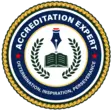New Oklahoma Authorization Requirements Starting 2025
Commencing in the 2025-26 academic year, a significant shift in Oklahoma state laws, administrative rules, and policies will come into effect for all authorizations. It’s crucial for institutions to refer to the ‘New Oklahoma Authorization Requirements Starting 2025’document for comprehensive details and prepare for these changes.













